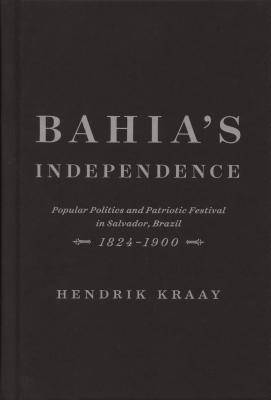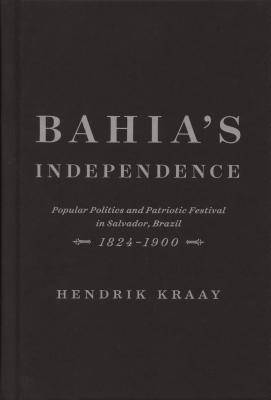
Bedankt voor het vertrouwen het afgelopen jaar! Om jou te bedanken bieden we GRATIS verzending (in België) aan op alles gedurende de hele maand januari.
- Afhalen na 1 uur in een winkel met voorraad
- In januari gratis thuislevering in België
- Ruim aanbod met 7 miljoen producten
Bedankt voor het vertrouwen het afgelopen jaar! Om jou te bedanken bieden we GRATIS verzending (in België) aan op alles gedurende de hele maand januari.
- Afhalen na 1 uur in een winkel met voorraad
- In januari gratis thuislevering in België
- Ruim aanbod met 7 miljoen producten
Zoeken
Omschrijving
Since 1824, Bahians have marked independence with a popular festival that contrasts sharply with the official commemoration of Brazil's independence on 7 September. The Dois de Julho (2 July) festival celebrates the day the Portuguese troops were expelled from Salvador in 1823, the culmination of a year-long war that gave independence a radical meaning in Bahia. Bahia's Independence traces the history of the Dois de Julho festival in Salvador, the Brazilian state's capital, from 1824 to 1900. Hendrik Kraay discusses how the festival draws on elements of saints' processions, carnivals, and civic ritual in the use of such distinctive features as the indigenist symbols of independence called the caboclos and the massive procession into the city that re-enacts the patriots' victorious entry in 1823. Providing a social history of celebration, Kraay explains how Bahians of all classes, from slaves to members of the elite, placed their stamp on the festivities and claimed recognition and citizenship through participation. Analyzing debates published in newspapers - about appropriate forms of commemoration and the nature of Bahia's relationship to Brazil - as well as theatrical and poetic representations of the festival, this volume unravels how Dois de Julho celebrations became so integral to Bahia's self-representation and to its politics. The first history of this unique festival's origins, Bahia's Independence reveals how enthusiastic celebrations allowed an active and engaged citizenry to express their identity as both Bahians and Brazilians and to seek to create the nation they desired.
Specificaties
Betrokkenen
- Auteur(s):
- Uitgeverij:
Inhoud
- Aantal bladzijden:
- 432
- Taal:
- Engels
Eigenschappen
- Productcode (EAN):
- 9780773557475
- Verschijningsdatum:
- 11/07/2019
- Uitvoering:
- Hardcover
- Formaat:
- Genaaid
- Afmetingen:
- 155 mm x 231 mm
- Gewicht:
- 635 g

Alleen bij Standaard Boekhandel
+ 399 punten op je klantenkaart van Standaard Boekhandel
Beoordelingen
We publiceren alleen reviews die voldoen aan de voorwaarden voor reviews. Bekijk onze voorwaarden voor reviews.









